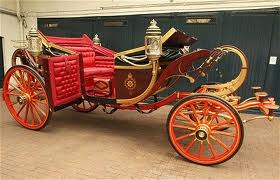Spring Waning Bee Hiving Moon
As the bee hiving moon fades to black, it makes way for the last frost moon. Our last frost up in the northern exurbs of the Twin Cities comes somewhere between May 15 and May 20 on average. May 15 is the date I use because I haven’t experienced a later frost, but it could happen. That’s the date the tomato plants go out, the kale and chard I’ve started (though I’ve also sown them outside, too), the beans, cucumbers and various annual flowers.
Tomorrow the Celtic calendar, the one I follow in addition to Gregorius’s, turns over to the season of Beltane. More on that Sunday.
Today is a rainy, cool day unfit for working with bees. Good for transplanting though, but I don’t have any more to do right now.
There was a royal wedding, wasn’t there? No, I did not get up at 4 am for a breakfast party to watch it, nor did I watch the 68 minute version Kate and Mark watched yesterday. I did scroll through pictures on the LA Times website. Got me wondering. Why all the attention in this, the most plebeian of powerful nations?
I stipulate the romantic notion of princess and prince, especially the steroidal version that involves a commoner elevated by marriage to royalty. We have a 5 year old grand-daughter who would have no trouble seeing herself in Kate Middleton’s role. Middleton, eh. Even the name reeks bourgeois. I stipulate further the fascination of any marriage as a symbol for that fragile, wonderful, ordinary miracle of love. I know these two play a factor, a large factor.
But 4 am? What’s up with that? Rather, who’s up with that?
One deeper fascination lies in a society ordered by class, a society in which the possibility of mobility does not exist, or is very severely muted, by traditional hierarchy: King, aristocracy, commoners. We don’t often reflect on the pressure of the bootstrap mentality, but it plays a role in the total stress load for each working adult. No, I’m not talking here about the usual self-help staple, work stress and how to manage it, nor am I talking about the how to become a billionaire buying distressed real estate or the like.
What I refer to here is the close-held, perhaps most cherished value in American life: A person can become anything they want to be, if only they have pluck and grit and put their nose to the grindstone and persevere and don’t let failure get them down. It’s not true, has never been true, but it’s essential to the American self image.
Only a handful of men with the athletic gifts necessary to play professional baseball, football or basketball make it. The rest don’t. The bell curve distribution of talent and intelligence, of good looks and good genes, puts often invisible barriers before hundreds of thousands of people, millions, people who will not be able to overcome their starting deficits in certain kinds of social competition.
In that sense a class based society is more honest, more reflective of the true nature of human communities, in this regard: it openly admits that different folks have different standing. It’s big lie of course is that standing in these cultures corresponds to the birth lottery and the wealth accumulation powers of your ancestors, not the individual merit of its members.
The tradeoff is a certain kind of anxiety, one we are more prone to and the ideal class based society is not (I’m not suggesting that Britain is an ideal class based society.), an anxiety that suggests each day, in every way I should be getting better and better. Hogwash. We all have limits of one kind or another. Recognizing those limits and embracing them is one of the important steps on the path of inner peace. A class based society encourages a certain type of limit recognition and therefore has an anxiety reducing appeal.
A yet deeper allure resides in the totality of pageantry, the uniforms, the wonderful carriages, the ritual, the formality. We mimic this in our wedding ceremonies to greater and lesser extents, in our Presidential inauguration, the thin soup of the national anthem at sporting events, the trumpets at the horse races, yet our attempts only show the lack of cultural context for them.
We mimic this in our wedding ceremonies to greater and lesser extents, in our Presidential inauguration, the thin soup of the national anthem at sporting events, the trumpets at the horse races, yet our attempts only show the lack of cultural context for them.
Beneath the glittering helmets, the pumpkin turned carriage landau, the long bridal train, the red carpet up Westminster lie a time out of time, a human society in which beauty and bravery, love and respect were not the stuff of a moment, but the fabric of all our lives; and, pressing us into that shiny world, even for a moment, lights the lamp of hope, stretches out the hand of friendship and loyalty to all.
This is the world the fantasy writer yearns to evoke. Fantasy’s grip on a certain reading public unmasks this yearning for a magic realm, a realm in which the current rules of economic order or class-based discrimination can find themselves challenged and beaten. It’s that hope, the hope that those carriages might be pulled by dragons, that those glittering helmets cover an army marching against evil, that at the end of that red carpet stands not a state sanctioned wedding, but a couple whose royalty comes from inner quality, not outer trappings, that undergirds our fascination with royal rituals, a subversive dream.
